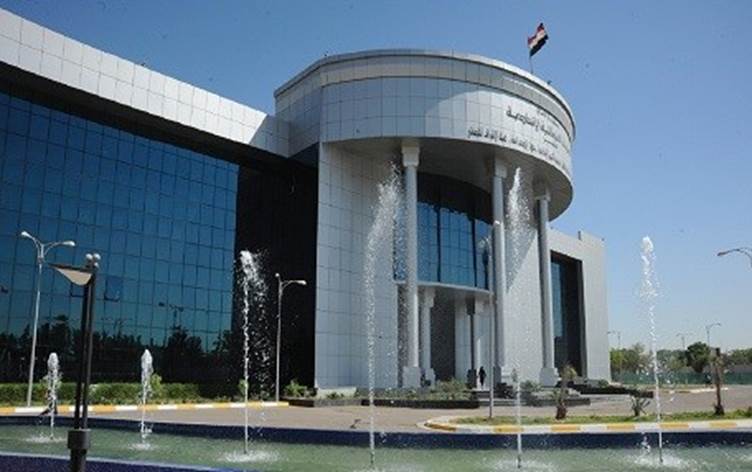ERBIL, Kurdistan Region – Iraq’s Supreme Court decided on Wednesday to establish a Federal Council, a move a Kurdish lawmaker in the Iraqi parliament described as "very important" for protecting Iraq’s federalism.
The council will act as an observer over laws that are passed by parliament, MP Zana Rostayi said.
"Iraq is a federal state but the federalism of this state is not complete because it does not have a Federal Council. If this council exists, there will be a filter for laws. Often, some laws are passed in the legislature which need review and it requires a party to review them and return them to the parliament," said Rostayi,a member of the Kurdistan Islamic Group (Komal).
"This law protects the interests of provinces and regions, therefore we in the legal committee welcome this decision by the Federal Court and we will do what falls upon us to include this law on the agenda for voting,” he added.
Rostayi called on the parliament and political parties to pass the law in order to “complete” Iraq’s law-making authority.
The ruling “commits” the Iraqi parliament to work with related parties to pass a law to form the Federal Council in light of Articles 65 and 37 of the constitution that stipulate the legislative branch consists of the parliament and Federal Council, and that the members of the Federal Council are from the regions and the provinces that are not part of any region.
The Kurdistan Region is the only region in Iraq that consists of four provinces, while the rest of the Iraqi provinces are officially called “provinces not incorporated in a region,” and therefore need to be represented in the Federal Council.
Former Kurdistan Region President Masoud Barzani expressed in July 2017 that the failure to form the Federal Council whose mission should have been to regulate between Baghdad and the regional government is an attempt to isolate the Kurdish government on a diplomatic level.
The ruling also points to the constitution that stipulates the law for the Federal Council must be passed with two-thirds of the votes in the parliament.
Most Kurdish politicians agree laws and especially the Iraqi constitution need to be better mutually understood, implemented and differences between Erbil and Baghdad settled.
An Iraqi federal court has acted as the country's de facto supreme court, despite Article 92 of the constitution calling for the establishment of a "Federal Supreme Court" that is "an independent judicial body financially and administratively" — a court that has never been created.
Article 92 specifically dictates that "the work of the court shall be determined by a law enacted by a two-thirds majority" of parliament.
Foremost, the Federal Supreme Court should be "overseeing the constitutionality of laws and regulations" and "settling disputes that arise between the federal government and the government of the regions and governorates, municipalities, and local administrations."
Additionally, Article 93 states the court should settle accusations directed against "the President, the Prime Minister and the Minister."
Both Erbil and Baghdad claim the other has violated the constitution multiple times. However, the KRG maintains that the failure of the establishment of Iraq's Federal Supreme Court — as outlined in the 2005 constitution — makes the Shiite-controlled government have too much influence over the judiciary, such was the case when a federal court in Baghdad issued a series of rulings after the Kurdistan Region's September 25 independence referendum.
The KRG has said it "respects" the ruling of the federal court.
KRG Prime Minister Nechirvan Barzani has called for the Iraqi constitution to be “implemented in its entirety” and to do this there needs to be a “third party.”
Iraqi Prime Minister Haider al-Abadi has rejected all offers of international mediation, calling the Erbil-Baghdad stalemate an internal Iraqi issue.



Comments
Rudaw moderates all comments submitted on our website. We welcome comments which are relevant to the article and encourage further discussion about the issues that matter to you. We also welcome constructive criticism about Rudaw.
To be approved for publication, however, your comments must meet our community guidelines.
We will not tolerate the following: profanity, threats, personal attacks, vulgarity, abuse (such as sexism, racism, homophobia or xenophobia), or commercial or personal promotion.
Comments that do not meet our guidelines will be rejected. Comments are not edited – they are either approved or rejected.
Post a comment